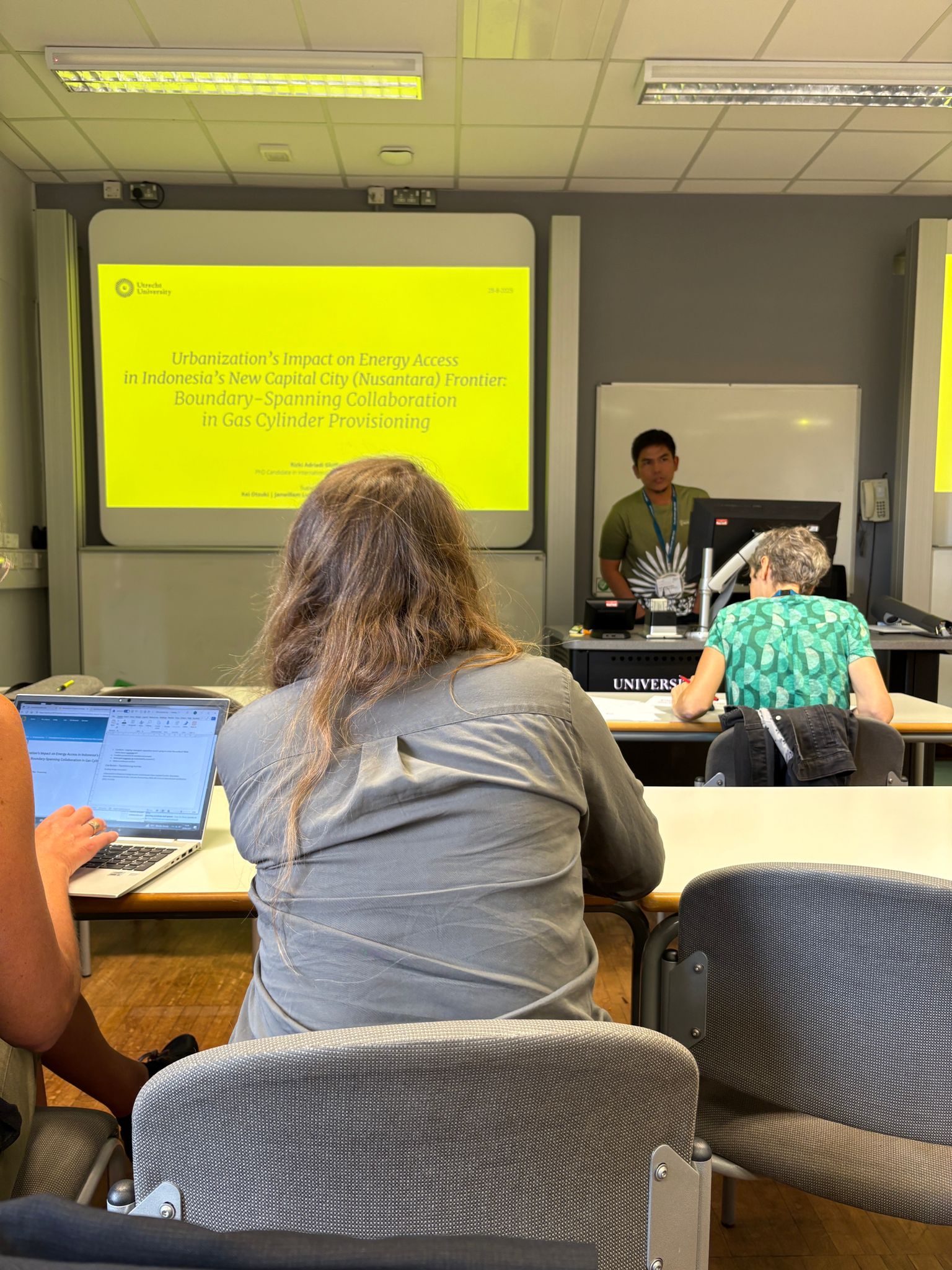Agenda
Urbanization’s Impact on Energy Access in Indonesia’s New Capital City (Nusantara) Frontier. Session on Royal Geographic Society Annual Conference
On the 28th of August, 2025, Forest city team member Rizki Ghiffari gave a presentation on the panel of “Creative Energies? The Geographies of Collaboration at the Social Science/Energy Policy Interface”, at the RGS-IBG Annual International Conference 2025 in University of Birmingham, UK. His presentation was entitled: Urbanization’s Impact on Energy Access in Indonesia’s New Capital City (Nusantara) Frontier: Boundary-Spanning Collaboration in Energy Provisioning.
First, he explains the research background on Nusantara’s low-carbon energy vision, which contrasts sharply with the on-the-ground realities of energy access that remain heavily dependent on fossil fuels. This gap has contributed to delays in the city’s inauguration due to inadequate ready-to-use infrastructure.
Although Nusantara is framed as a greenfield development, in practice it relies significantly on resource access from surrounding rural settlements. This dependency has driven uneven urbanization in the area to meet Nusantara’s needs, including energy access.
In conclusion, boundary-spanning collaboration in fossil-based energy provisioning—particularly in the settlements surrounding the Nusantara construction site—has become a structural feature of the city’s urbanization, rather than a temporary response.
This reality challenges the dominant energy justice frameworks typically applied to mega-infrastructure projects, which emphasize procedural, recognitional, distributional, and restorative justice. While such frameworks suit centralized energy provisioning systems, they struggle to capture the dynamics of heterogeneous provisioning.
The case of Nusantara also provides new insights into state–informal co-production in shaping energy access in the Global South. Informal provisioning usually emerges within informal settlements as a coping strategy for limited energy access (Jaglin, 2014; Koepke et al., 2024). However, in Nusantara, informal energy provisioning has emerged and proliferated as a coping response to a state-led urbanization project, where regulatory and investment barriers constrain the expansion of formal energy systems—posing further challenges to the city’s energy transition vision.
The discussion after the presentation focused on the question of what comes next if the current energy justice framework does not adequately capture heterogeneous energy provisioning. The debate then shifted to energy ethics, drawing on the concept of infrastructural accessibility and the ethics of care. Future discussions will likely explore how energy justice debates can move beyond frameworks derived primarily from environmental justice.


